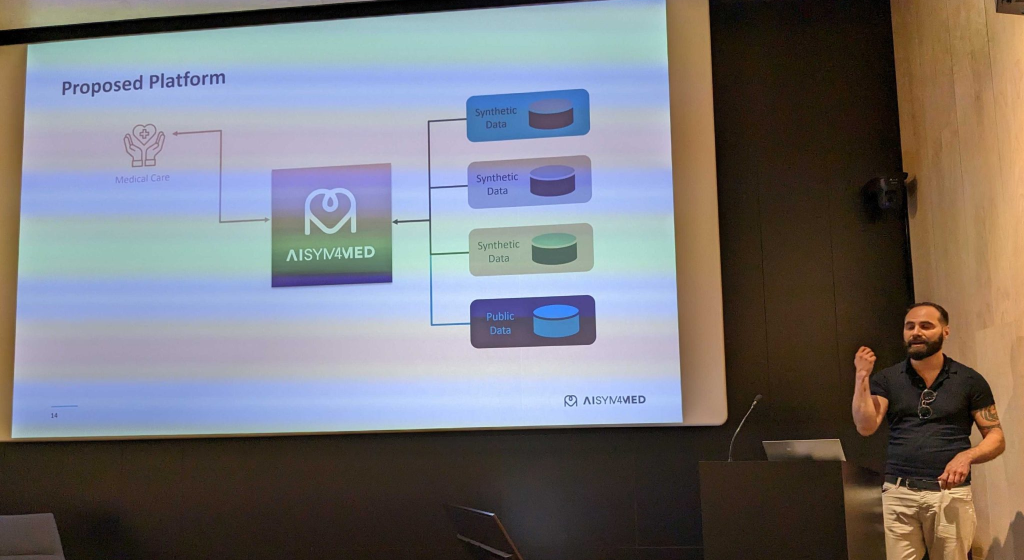The recent article published on Digital Health studies the concept of “learning health systems” and their potential to revolutionize population health management through the use of artificial intelligence (AI). This aligns closely with the core mission of AISym4Med, a European-funded project that is developing a platform specifically designed to address a critical challenge in this field: access to high-quality medical data for AI development.
One of the key obstacles in leveraging AI for population health management is the availability of sufficient, high-quality medical data. AISym4Med tackles this challenge by creating a platform that generates synthetic medical data. This synthetic data serves two important purposes. First, it supplements real-world medical data to create a richer dataset for AI development. This allows for the creation of more diverse and generalizable AI models that can be applied to broader populations. Second, by design, synthetic data protects patient confidentiality. This ensures researchers and developers have access to the data they need to train AI algorithms for population health applications without compromising patient privacy.
By providing a platform for AI development with access to a robust dataset, AISym4Med aims to empower researchers and developers to build AI models that can contribute to several advancements in population health management. AI has the potential to identify individuals at higher risk for developing chronic diseases, leading to earlier interventions and potentially improved health outcomes. Additionally, AI models can be used to tailor preventive and treatment plans to the specific needs and risk factors of individual patients. This personalization can lead to more effective population health management strategies. Finally, early disease detection and targeted interventions facilitated by AI can potentially help control healthcare spending and optimize resource allocation within the healthcare system.
AISym4Med’s work with synthetic medical data contributes to the development of AI for population health management, aligning with the vision of “learning health systems” as outlined in the Digital Health article. As this field progresses, AI has the potential to play a significant role in improving population health outcomes and creating a more efficient healthcare system.



